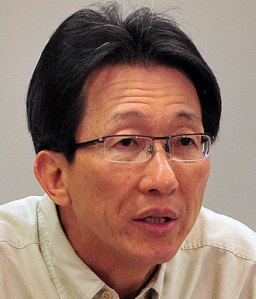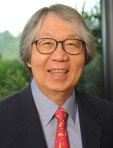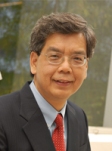Hear no Evil? The PAP and the politics behind Minimum Wage
In January this year, I was invited by the National University of Singapore Political Association (NUSPA) to write a feature that reflected my personal views on the minimum wage in Singapore. NUSPA also extended the same invitation to the Young PAP, with PAP GE 2011 candidate, Vikram Nair penning his thoughts on the same subject. We submitted our articles in January and finally, both articles will appear this week in the NUSPA publication, “The Diplomat“, Issue 1, 2011. I understand 1000 copies have been printed for NUS students.
I would like to thank NUSPA for allowing me to re-produce my article on Singapore2025.
_____________
One concern of many Singaporeans lies in the immediate and long-term well being of our low-income workers, and the utility of measures the government may consider to reasonably protect or even inoculate them against the vagaries of business cycles, inflation and the rising cost of living in Singapore. A separate quandary revolves around how our low-income workers can be expected to raise their children and fulfil their life aspirations in a Singapore that already hosts one of the world’s wildest income gaps between the rich and poor.
Even before parliament discussed the minimum wage in some detail on 12 Jan 2011, the PAP decided, through the mainstream media no less, that the minimum wage option was not on the cards. As far as the “debate” went, it was David against Goliath right from the outset.
On Goliath’s side, and as early as October 2010, NTUC (comprising of more than 60 affiliate unions representing 530,000 workers) Secretary-General Lim Swee Say went so far to say that minimum wage adherents were looking for an “easy way” out. The Singapore National Employers Federation (comprising 2000 members employing 600,000 workers) also weighed in with him, albeit with an intuitively powerful argument – that costs will go up and jobs lost if the minimum wage was implemented. The spirit of these arguments mirrored much of what PAP MPs repeated in parliament in January 2011.
David, on the other hand was represented by a few wise men. All were senior, professional and respected in their own right – Ambassador-at-large and Chairman of the Institute of Policy Studies Tommy Koh; Institute of Southeast Asian Studies Director, K. Kesavapany and NUS Lee Kuan Yew School of Public Policy economist A/P Hui Weng Tat at various points throughout 2010 were quoted in the Straits Times urging the government to seriously consider the minimum wage for a variety of reasons. Their arguments, unsurprisingly, could not shift the PAP juggernaut, even though some were compelling and worthy of apolitical scrutiny.
Accordingly, two distinctly separate observations can be adduced from the PAP’s style of policymaking with regard to the minimum wage discourse.
Firstly, the nature of the debate over the minimum wage policy reflected the same old PAP frog-in-the-well approach to citizen feedback. Rather than see minimum wage adherents as Singaporeans that had the interests of low-income Singaporeans at heart, they were needlessly cast in pejorative light.
In 2007, on the back of the controversy over ministerial pay-hikes, MM Lee remarked that Singapore was a $4 trillion economy and that a $20 million pay hike for PAP ministers had to be “put into perspective.” Equally it can be said, many minimum wage proposers were looking to put the well being of our low-income workers, some of whom earn wages egregiously inconsistent with the cost of living in Singapore, into context of a $4 trillion economy as well. The PAP’s approach to the minimum wage debate before the issue was discussed in parliament made it obvious that Singapore is far from becoming the participatory democracy Senior Minister Goh Chok Tong had envisioned in the early 1990s when he took over as the second Prime Minister of Singapore, almost 20 years ago now.
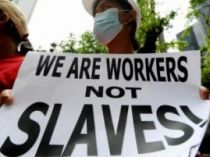 Secondly, the minimum wage debate revealed a manifest PAP indifference at even considering the potentially positive effects of a minimum wage policy for Singapore’s low-income earners, or as an impediment against abusive wage practices.
Secondly, the minimum wage debate revealed a manifest PAP indifference at even considering the potentially positive effects of a minimum wage policy for Singapore’s low-income earners, or as an impediment against abusive wage practices.
The PAP of today fails to understand that public expectation on the quality of political discourse has increased commensurately with a more educated populace and the reality of handsomely paid politicians. Singaporeans are willing to consider the PAP’s reasons for not accepting the minimum wage proposal, but they also expect a robust debate on the matter in line with those of first-world countries.
For example, some Singaporeans have argued that a progressive introduction of the minimum wage cannot be ruled out in light of the unique constitution of the Singapore economy. Singapore companies and/or GLCs that operate in near monopolistic or oligopolistic conditions locally, such as Singapore Press Holdings, Singapore Technologies, Singtel, SMRT, etc. have little moral gravitas to argue against the minimum wage as they rake in enviable profits whether the local economy is in recession or not. The argument becomes even more compelling when only a fraction of their workforce would be on the minimum wage. Labour-intensive SMEs and certain MNCs can potentially be assisted with a minimum wage top-up credit tied to productivity, a component of which can be conceivably drawn from gambling revenues. Clearly, there is scope for greater discussion and research on the minimum wage. Hong Kong for instance took ten years to debate the minimum wage before finally making a decision on it.
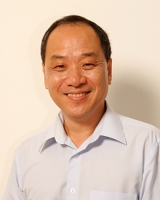 In parliament, MP for Hougang and Workers’ Party Secretary-General, Mr Low Thia Khiang proposed the formation of an advisory board to research and recommend the minimum wage for specific occupations, a reasonable proposal – one made more persuasive by a Business Times report on 11 Jan 2011 which stated that companies were “split down the middle” on whether the minimum wage would help low income workers. The article made reference to a survey conducted by the Singapore Human Resources Institute (whose President is PAP MP Mdm Ho Geok Choo), which saw 34% of the respondents believing the minimum wage would “benefit” low-income workers, with 41% “unsure”. 15% thought the minimum wage would reduce low-wage employment while 8% thought it would go up. Mr Low’s proposal was not even a call for the minimum wage, but simply a serious, neutral and apolitical enquiry into the viability of a minimum wage policy. PAP parliamentarians roundly shot down Mr Low’s proposal.
In parliament, MP for Hougang and Workers’ Party Secretary-General, Mr Low Thia Khiang proposed the formation of an advisory board to research and recommend the minimum wage for specific occupations, a reasonable proposal – one made more persuasive by a Business Times report on 11 Jan 2011 which stated that companies were “split down the middle” on whether the minimum wage would help low income workers. The article made reference to a survey conducted by the Singapore Human Resources Institute (whose President is PAP MP Mdm Ho Geok Choo), which saw 34% of the respondents believing the minimum wage would “benefit” low-income workers, with 41% “unsure”. 15% thought the minimum wage would reduce low-wage employment while 8% thought it would go up. Mr Low’s proposal was not even a call for the minimum wage, but simply a serious, neutral and apolitical enquiry into the viability of a minimum wage policy. PAP parliamentarians roundly shot down Mr Low’s proposal.
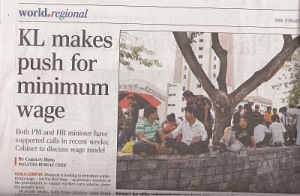 Even the Workers’ Party Secretary-General’s pragmatic call for a benchmark to monitor the progress of government strategies to uplift the lot of low-wage Singaporeans was met with abject disinterest. The reasons for this apathy in tracking PAP policies aimed at assisting low-income earning Singaporeans is perhaps best left for the PAP to ruminate over. Whatever they may be, this putative anti-accountability stance was not reminiscent of government that prides itself on being “first-world”.
Even the Workers’ Party Secretary-General’s pragmatic call for a benchmark to monitor the progress of government strategies to uplift the lot of low-wage Singaporeans was met with abject disinterest. The reasons for this apathy in tracking PAP policies aimed at assisting low-income earning Singaporeans is perhaps best left for the PAP to ruminate over. Whatever they may be, this putative anti-accountability stance was not reminiscent of government that prides itself on being “first-world”.
No right-minded Singaporean is making a call for a minimum wage policy masquerading as a trojan horse for a welfare state. Singaporeans I have spoken to are willing to give a heavily modified version of Workfare a chance. But with economies like Hong Kong introducing the minimum wage and effectively debunking doomsday scenarios predicated by PAP parliamentarians, the prospects of an apolitical and de-politicised study into not just a minimum wage policy – but even a minimum wage policy working alongside Workfare – should not be prematurely discarded.
Pritam Singh is a member of the Workers’ Party Youth Wing.
Useful Links:
Tommy Koh weighs in – http://www.straitstimes.com/BreakingNews/Singapore/Story/STIStory_578507.html
Minimum Wage law works – http://non-compos-mentis.blogspot.com/2010/09/minimum-wage-law-works-by-hui-weng-tat.html
